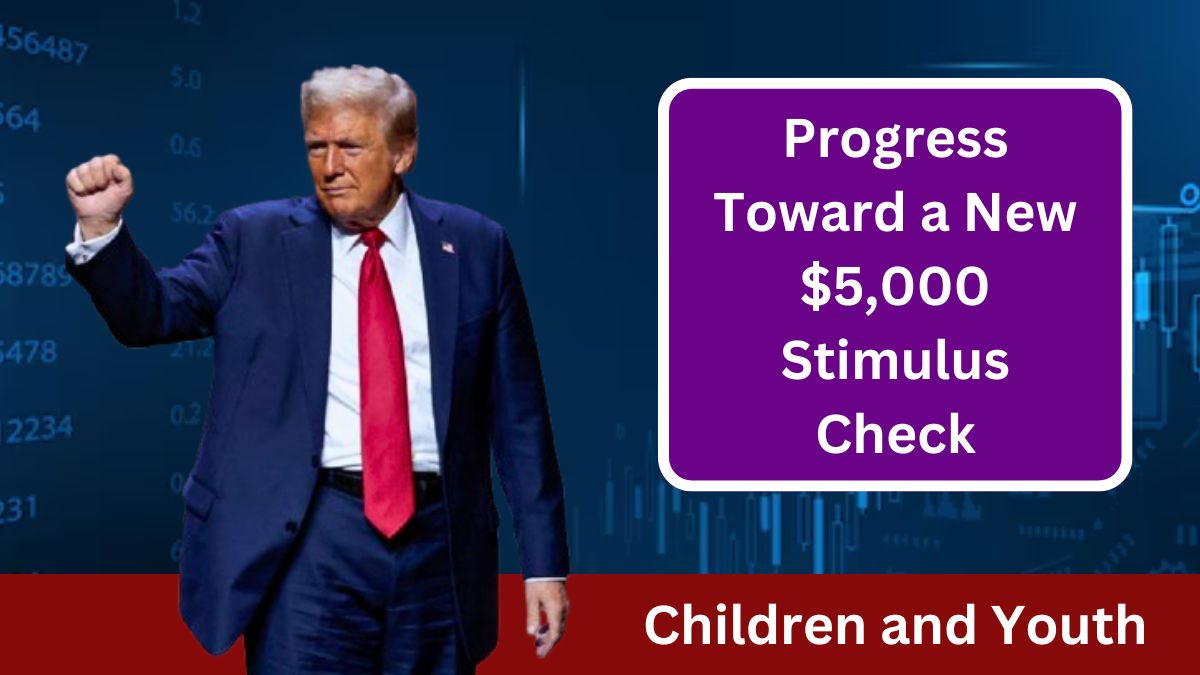The American Dream Accounts Act aims to provide children in the U.S., especially those from low-income families, a significant economic head start. This ambitious proposal seeks to grant every newborn a $5,000 stimulus check, establishing a fund designed to grow over time and help young adults achieve various life goals. If implemented, it could mark a transformative step toward economic equality for future generations.
$5,000 Stimulus Works
At the heart of the Act is the concept of financial investment for newborns. Each $5,000 deposit would be set in an account intended to earn a 10% annual return, similar to the long-term performance of stock indexes like the S&P 500. By the time beneficiaries reach an age range of 18 to 25, the accumulated funds could be substantial enough to support major life expenses. Beneficiaries would have a set window to use the funds; otherwise, any unused amount would revert to the Department of the Treasury.
Potential Uses
- Higher education tuition
- Down payment on a home
- Starting a business
- Savings for future needs
AmeriCorps Youth Bonuses
A special aspect of the Act is its inclusion of incentives for young adults participating in AmeriCorps, a national service program. These participants would be eligible for an additional $10,000 in funding, recognizing their commitment to community-focused work. The purpose of this bonus is twofold: to reward civic dedication and to promote volunteerism.
AmeriCorps and Its Role
AmeriCorps enables young adults to engage in impactful community projects, from disaster relief to educational outreach. By offering financial benefits, the Act aims to highlight the importance of service and foster a culture that values civic duty alongside personal growth.
Integrating Financial Literacy
To complement the economic stimulus, the Act emphasizes the need for robust financial education. The Department of Education would develop programs to teach students essential financial skills such as budgeting, saving, investing, and entrepreneurship. Through a mobile app, children would be able to monitor their account growth, learn about compound interest, and gain practical insights into financial management.
Early Financial Literacy
- Developing Responsible Money Habits: Learning to manage finances early can help prevent debt and foster better financial health in adulthood.
- Bridging Financial Literacy Gaps: Disparities in financial knowledge often align with income, racial, and gender divides. Educating children from an early age helps level the playing field.
- Reducing Future Debt: Understanding financial concepts helps young adults avoid common debt traps, promoting financial independence.
- Stimulating Interest in Finance: Exposure to financial education can spark future careers in finance and entrepreneurship.
Financial Education
Educators, policymakers, and community partners can work together to make financial literacy a staple in school curriculums. Effective strategies include:
- School-Based Programs: Integrating financial education into existing courses.
- Extracurricular Opportunities: Clubs and after-school programs focused on financial skills.
- Parental Involvement: Encouraging parents to discuss and reinforce financial concepts at home.
- Partnerships with Financial Institutions: Leveraging external resources to support educational efforts.
Organizations like the Commercial Bank of California have already taken steps to expand financial literacy programs for youth, demonstrating the impact of targeted efforts in community education.
Long-Term Vision
The American Dream Accounts Act represents more than just a financial plan—it embodies a commitment to giving every child an opportunity to succeed. The bill’s sponsor, Phillips, underscores its broader purpose: “Investing in our children is an investment in the future of our nation. This bill is a commitment to the value of self-determination and opportunity for all.” The proposal embodies a belief in a society where economic limitations do not constrain individual potential.
The American Dream Accounts Act, with its $5,000 stimulus for newborns and educational programs, offers a blueprint for helping the next generation overcome economic barriers. The potential benefits of combining financial support with literacy education could foster a generation that is better equipped to manage finances, seize opportunities, and contribute meaningfully to society.
FAQs
What is the stimulus check amount proposed at birth?
Each newborn would receive a $5,000 stimulus check.
How can beneficiaries use the funds?
For education, a home down payment, starting a business, or saving.
What is the AmeriCorps bonus under this proposal?
AmeriCorps participants may receive an additional $10,000 in funding.
Why is financial literacy included in the Act?
To teach children money management, investing, and financial responsibility.
What happens if funds go unclaimed by age 25?
The funds revert to the Department of the Treasury.











